The God of War franchise has experienced a significant revival, particularly after the successful 2018 reboot. With the upcoming PC Port and the highly anticipated God of War Ragnarök, the series is thriving. It’s an ideal moment to reflect on its journey.
Originally released in 2005, God of War started as a hack and slash game centered around Greek mythology. However, it has since evolved in terms of its scale, storytelling, and gameplay mechanics. Today, it is considered one of PlayStation’s flagship titles and has become an unofficial mascot for the brand.
Keeping track of the God of War series can be challenging due to spinoffs, mobile versions, and a non-chronological order. Fortunately, we are here to provide clarity. Many of the games have been remastered or included in PS Plus Extra, allowing players to experience the main games in either chronological or release order.
Below, we will present both options so you can slay larger-than-life creatures in your preferred sequence.
You Might Also Like:
- Resident Evil Games in Order
- GTA Games in Order
- Call of Duty Games in Order
- Legend of Zelda Games in Order
How Many God of War Games Are There?
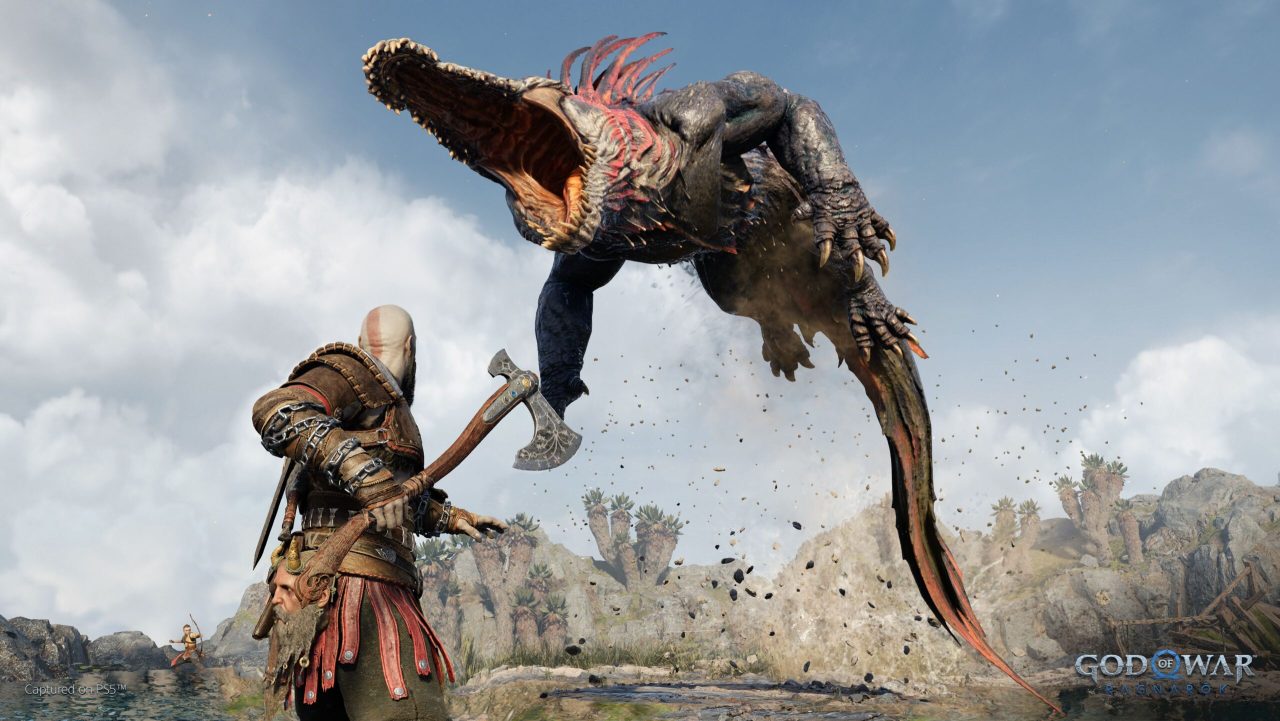
In the God of War series, Sony has developed and launched a total of 10 games. These games include six that were designed for home consoles, two for portable consoles, one for mobile devices, and even a text-adventure game specifically designed for Facebook Messenger.
We will not be including God of War: Mimir’s Vision, a mobile AR game that does not contribute to the ongoing storyline but rather offers players additional background information about the God of War universe.
Additionally, we will not be considering PlayStation All-Stars Battle Royale in this chronological order, even though it humorously references the God of War series. It is worth noting that there are also God of War stories told through novels and comics, but this list solely focuses on the games.
God of War order by release date
- God of War (2005)
- God of War 2 (2007)
- God of War: Betrayal (2007)
- God of War: Chains of Olympus (2008)
- God of War 3 (2010)
- God of War: Ghost of Sparta (2010)
- God of War: Ascension (2013)
- God of War: A Call from the Wilds (2018)
- God of War (2018)
- God of War Ragnarok (2022)
Chronological order to play God of War
- God of War: Ascension (2013)
- God of War: Chains of Olympus (2008)
- God of War (2005)
- God of War: Ghost of Sparta (2010)
- God of War: Betrayal (2007)
- God of War 2 (2007)
- God of War 3 (2010)
- God of War: A Call from the Wilds (2018)
- God of War (2018)
- God of War Ragnarok (2022)
God of War Games in Chronological Order
If you’re looking to explore the God of War Games in the order in which they occur and fully immerse yourself in the franchise’s storyline game by game, we’ve got you covered with a brief overview of the correct sequence:
God of War: Ascension (2013)
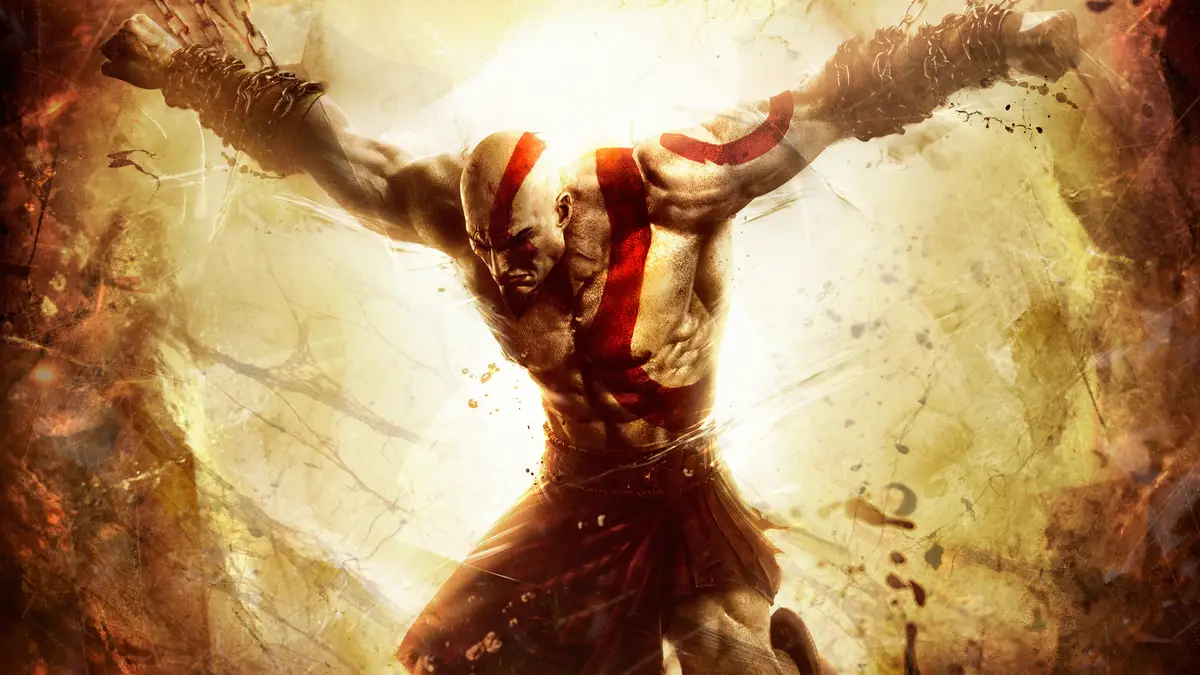
Ascension is the seventh installment in the God of War series, although it is the first in terms of the chronological order of events. This game delves into the story of Kratos seeking revenge and depicts his journey from being a demigod of Sparta to becoming the powerful God of War.
The events of Ascension occur a few months after Kratos was tricked by the Greek God of War Ares into murdering his wife and daughter. This is further explained in the original God of War section below. Kratos, deeply affected by the loss and suffering from trauma, decides to defy his allegiance to Ares, which sets the stage for the plot of Ascension.
In the God of War games, Ares, the god of war, seeks vengeance by using the game’s antagonistic characters known as the Furies. These three beings have the responsibility of punishing those who betray others.
In order to break free from his oath, Kratos, the protagonist, must defeat and kill the Furies. The story concludes with Kratos leaving his Spartan homeland, haunted by his sorrow.
God of War: Chains of Olympus (2008)
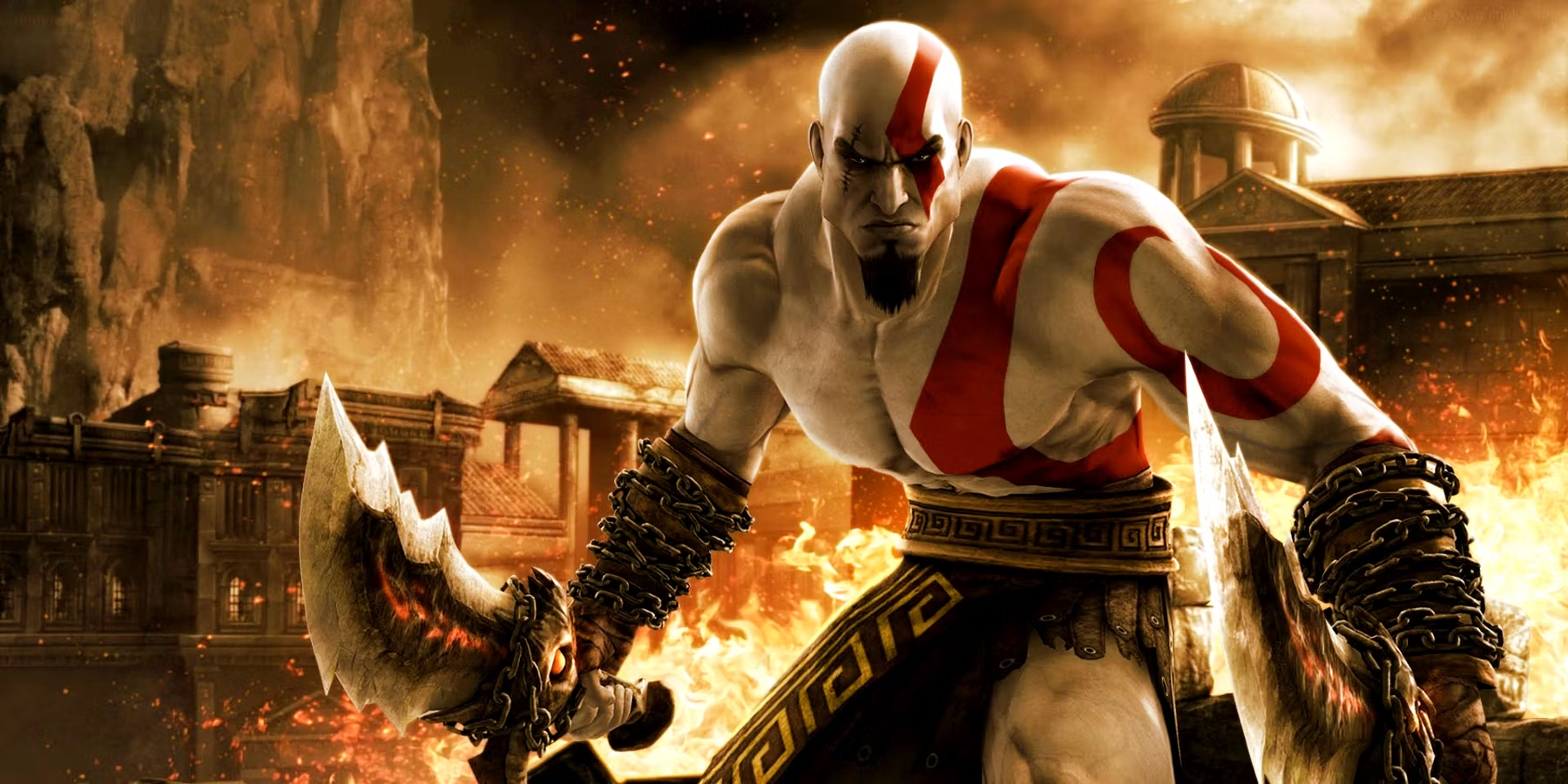
The next installment of Kratos’s journey can be experienced in the PlayStation Portable (PSP) game titled God of War: Chains of Olympus. This game is set in the realm of Olympus, which occurs in the middle of Kratos’s ten-year period of serving the gods (taking place five years before the events of the original God of War game). Through this servitude, Kratos hopes to finally escape the tormenting memories of his past.
In the storyline of the game, Kratos is given the important mission of saving Helios, the powerful God of the Sun, who is trapped in the underworld. Athena is the one who asks him to undertake this task.
During his journey, Kratos comes face to face with Persephone, the main antagonist of the game and the Queen of the Underworld. Persephone offers Kratos a chance to be reunited with his daughter, but this decision brings about potentially catastrophic consequences. Kratos also struggles with his commitment to return Helios to the gods.
God of War (2005)
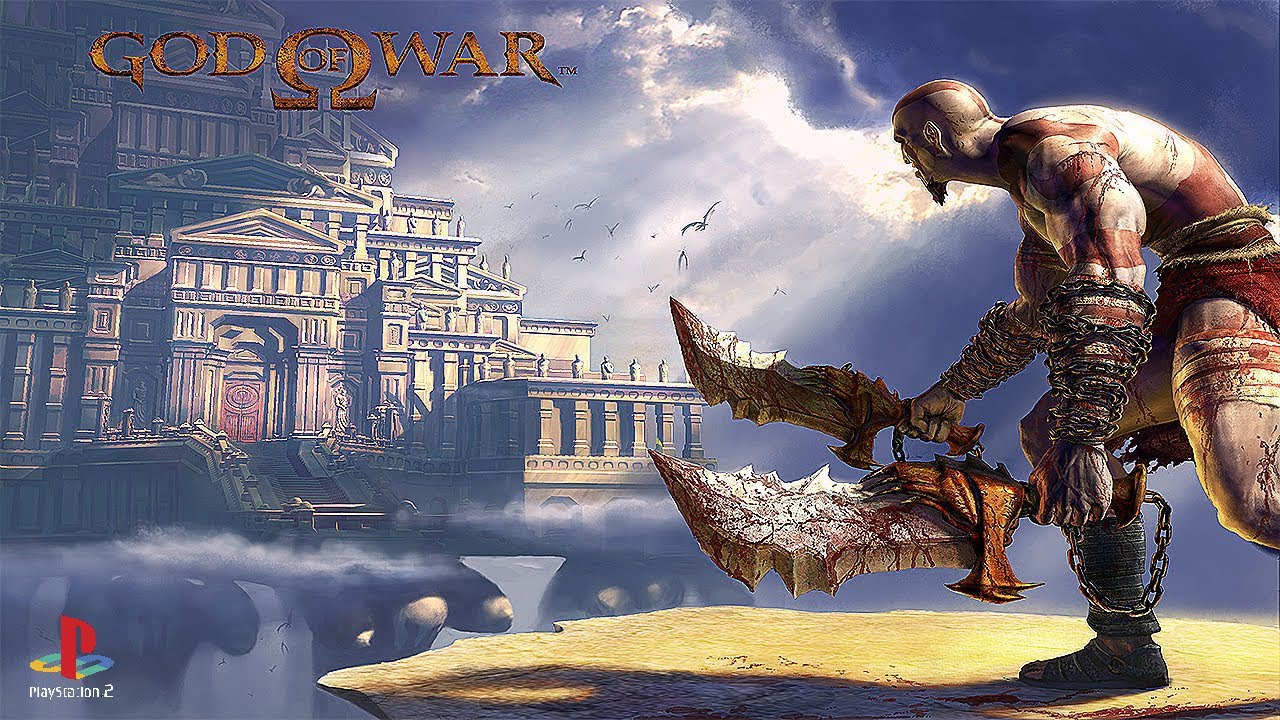
Taking place around a decade after the events of Ascension, the initial God of War installment showcases Kratos’ descent into despair as he decides to end his life by leaping off a cliff into the Aegean Sea. However, just before he plunges into the water, the narrative transports us back in time by three weeks to unveil the events that pushed the Spartan warrior to the edge.
In the God of War games, the protagonist named Kratos is nearing the end of his time serving the gods. However, he is given one final mission by Athena. This mission requires him to defeat Ares and save the city of Athens from his destructive siege.
In return for his success, Athena promises to forgive Kratos for his past terrible actions. Determined to obtain Pandora’s Box and kill Ares, Kratos embarks on a challenging journey that takes him through hell and back.
Eventually, he confronts and emerges victorious against the God of War. Despite his triumph, Kratos remains haunted by his past. In a scene reminiscent of the game’s opening, Kratos jumps off a bluff. However, Athena saves him from the water and offers him a throne on Olympus, marking the culmination of his ten-year journey to becoming the God of War.
In the God of War games, there are cut scenes where a narrator gives important background information about Kratos. The narrator explains that Kratos used to be a respected captain in the Spartan army.
In a moment of desperation, facing death and defeat at the hands of barbarians, Kratos made a deal with the god Ares. He offered his servitude to Ares in exchange for victory. Ares accepted the offer, defeated the barbarians, and bestowed upon Kratos the Blades of Chaos, merging them with his arms.
God of War: Ghost of Sparta (2010)
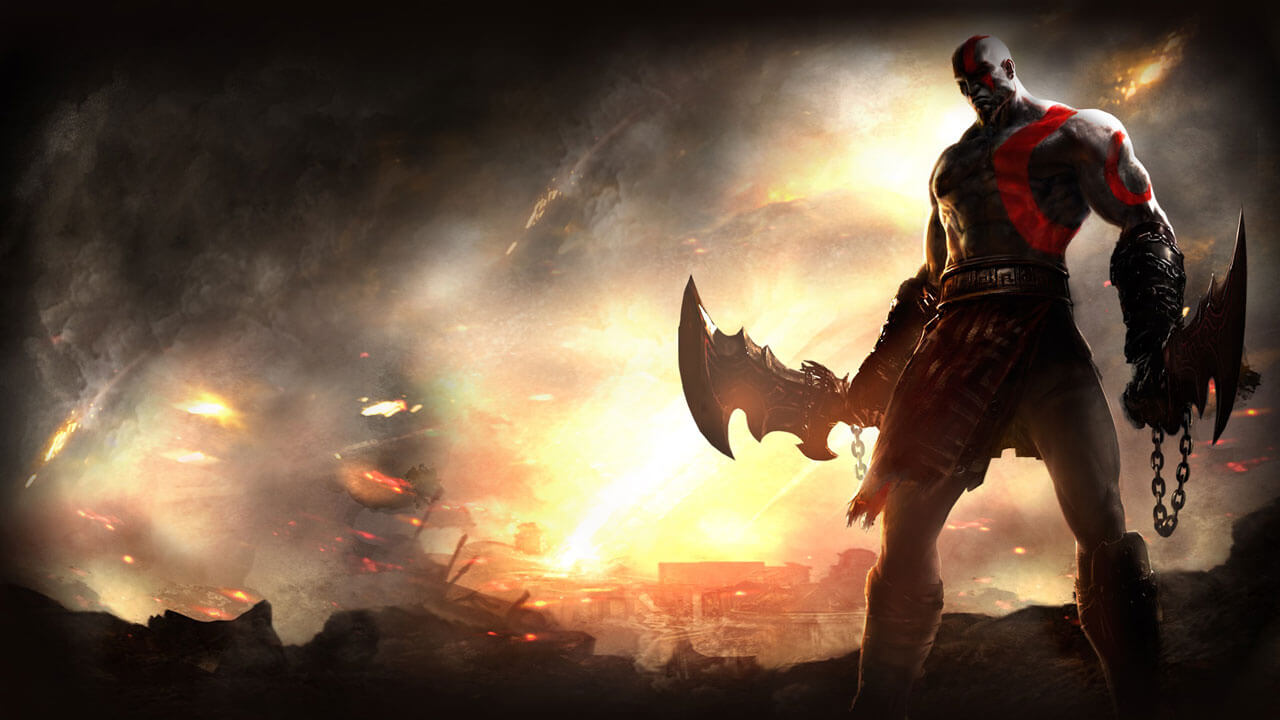
The second game in the God of War series for the PSP is called Ghost of Sparta. This game is set between the events of the original God of War game and its sequel, God of War 2. The game’s subtitle refers to the nickname given to the protagonist, Kratos, because of his pale-white complexion. This appearance is a result of a curse placed on him by an oracle, where the ashes of his wife and child are permanently attached to his skin.
The game Ghost of Sparta serves as a conclusion to two interconnected family storylines. In this game, Kratos embarks on a journey to Atlantis, where he has the chance to reunite with his mortal mother and his brother Deimos, who was taken away by the gods when they were young to avoid the foretold downfall of Olympus.
In the culmination of the story, Kratos and his sibling come together again to confront Thanatos, the Greek deity associated with death. Although they emerge victorious, Kratos is left with another bittersweet conclusion. As the credits roll, Kratos’s weariness and anger towards the other gods intensify even further.
God of War: Betrayal (2007)
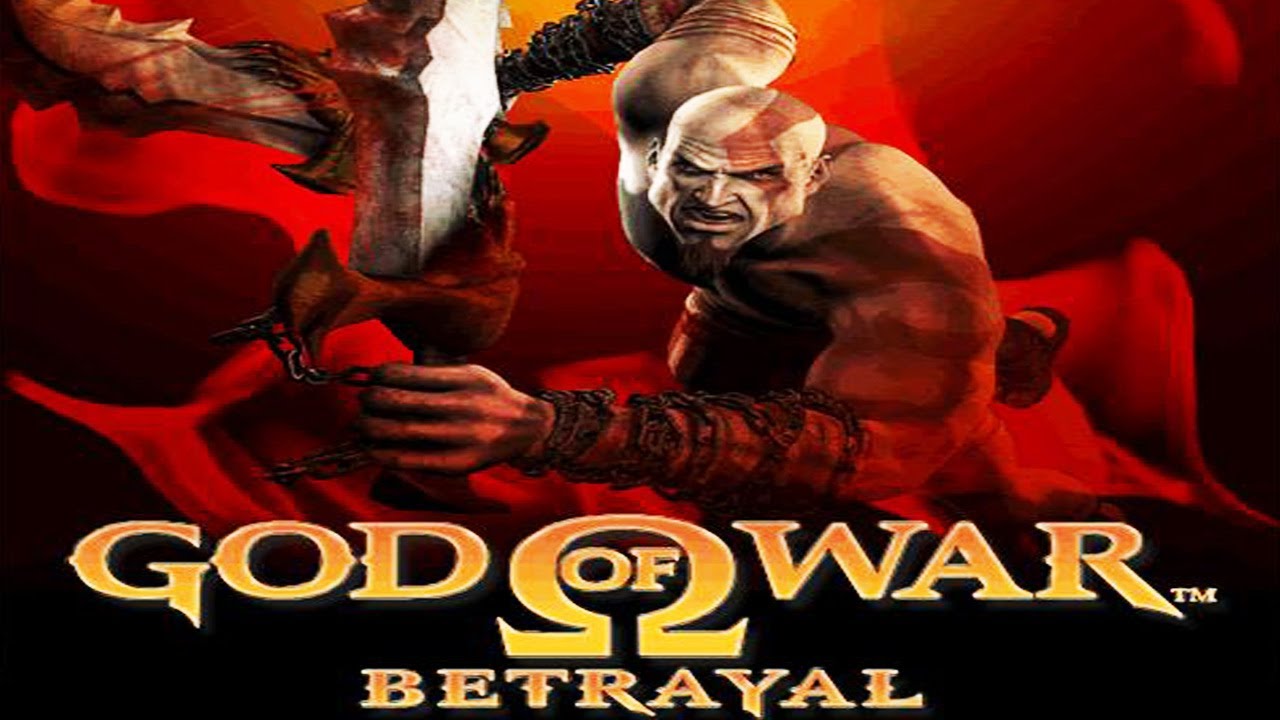
According to Bruno Velazquez, the animation director at Sony Santa Monica, this mobile 2D sidescroller is officially considered part of the God of War series. In this game, the gods are unhappy with Kratos’s excessive violence and try to impede his latest conquest.
They send Argos, a giant with multiple eyes who serves Hera, the Queen of the Gods, to stop him. However, Kratos is wrongly accused of killing Argos by an unknown assassin, who aims to further damage his relationship with Olympus.
Later on, Zeus sends a messenger to halt Kratos’s ongoing destruction. But once again, Kratos responds with violence, defying the other gods. Released in 2007, God of War: Betrayal cannot be found on modern mobile app stores as it predates the popularity of smartphones. However, if players wish to experience it, they can access it through a Java emulator.
God of War 2 (2007)
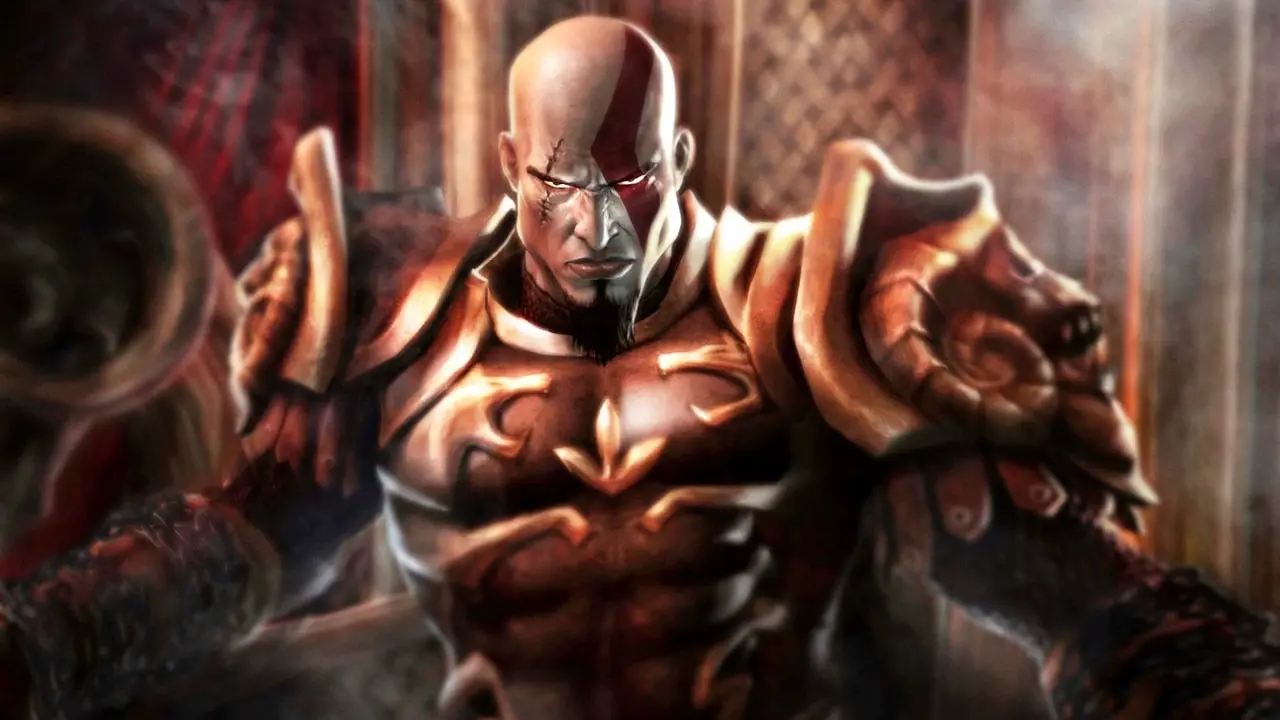
In the game God of War 2, the protagonist Kratos is confronted by Zeus, who is the ruler of Olympus. Kratos, who has already been isolated because of his destructive actions over the years, refuses Athena’s plea for reconciliation and continues causing chaos in Greece.
This leads to a breaking point for Olympus, and Zeus personally intervenes in the battle and ultimately kills Kratos. Kratos encounters a new companion named Gaia, who is not only the mother of Titans but also the embodiment of Earth.
Gaia grants Kratos a unique opportunity to alter the events of the past and ultimately save his own life. Following Gaia’s guidance, Kratos embarks on a journey to the Underworld, where he eventually discovers the Sisters of Fate.
Through intense battles and tragic sacrifices, Kratos manages to seize control of the powerful Loom of Fate, enabling him to revisit the moment of his demise. However, Kratos’s mission to slay Zeus, the ruler of the gods, is unexpectedly interrupted by another deity.
This pivotal moment not only reveals Kratos’s true lineage but also unlocks his ability to harness the Loom’s energy to rally the Titans from ancient times for his future battles. Meanwhile, in the present timeline, Kratos leads the Titans in a full-scale assault on Mount Olympus, effectively setting the stage for the epic showdown in God of War 3.
God of War 3 (2010)
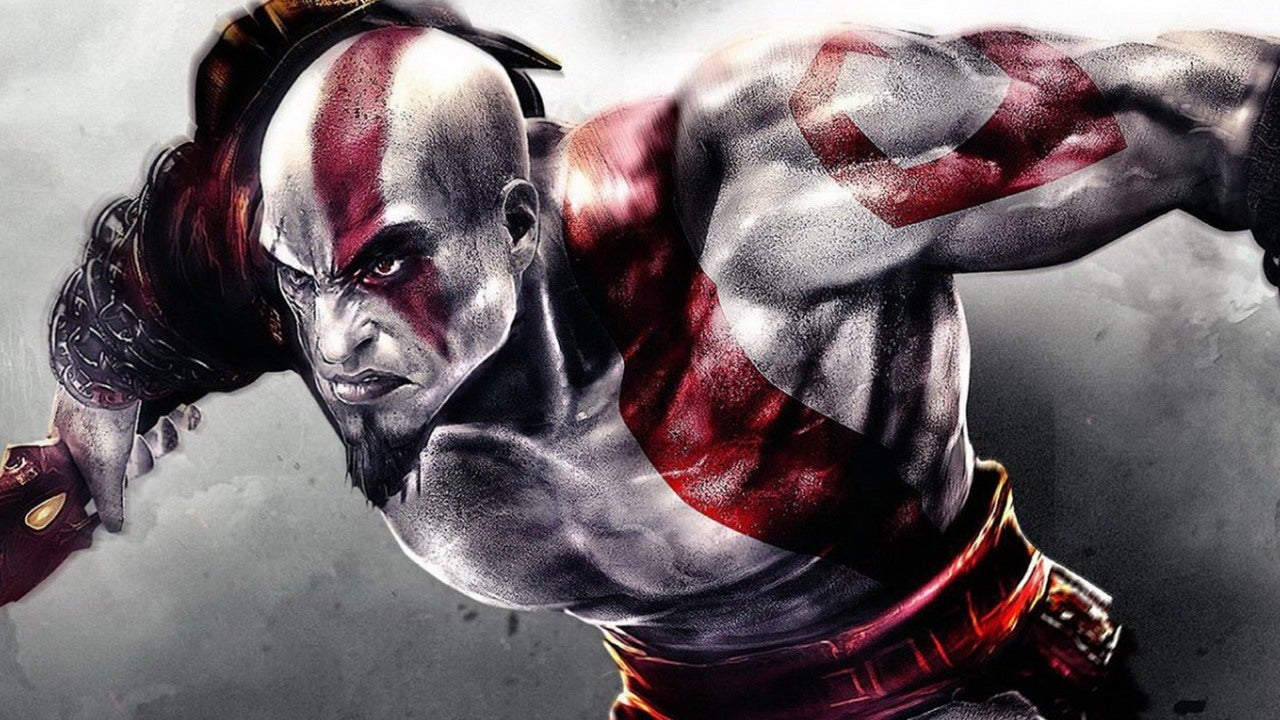
Continuing the storyline from the previous installment, God of War 3 follows the conclusion of Kratos’ Greek adventure and his ongoing conflict with Zeus and the Olympians. In a catastrophic battle, Kratos and the Titans engage in a fierce fight against the Olympians.
Once again, Kratos experiences betrayal and finds himself descending into the Underworld. There, he forms an alliance with a trusted companion to finally defeat Zeus. Meanwhile, on Earth, Kratos confronts the anger of both Titans and Gods, embarking on a brutal killing spree that ultimately leads to a final showdown with Zeus.
Determined to put an end to his vengeance, Kratos sacrifices himself to bring hope back to mankind amidst the world’s devastation.
God of War: A Call from the Wilds (2018)
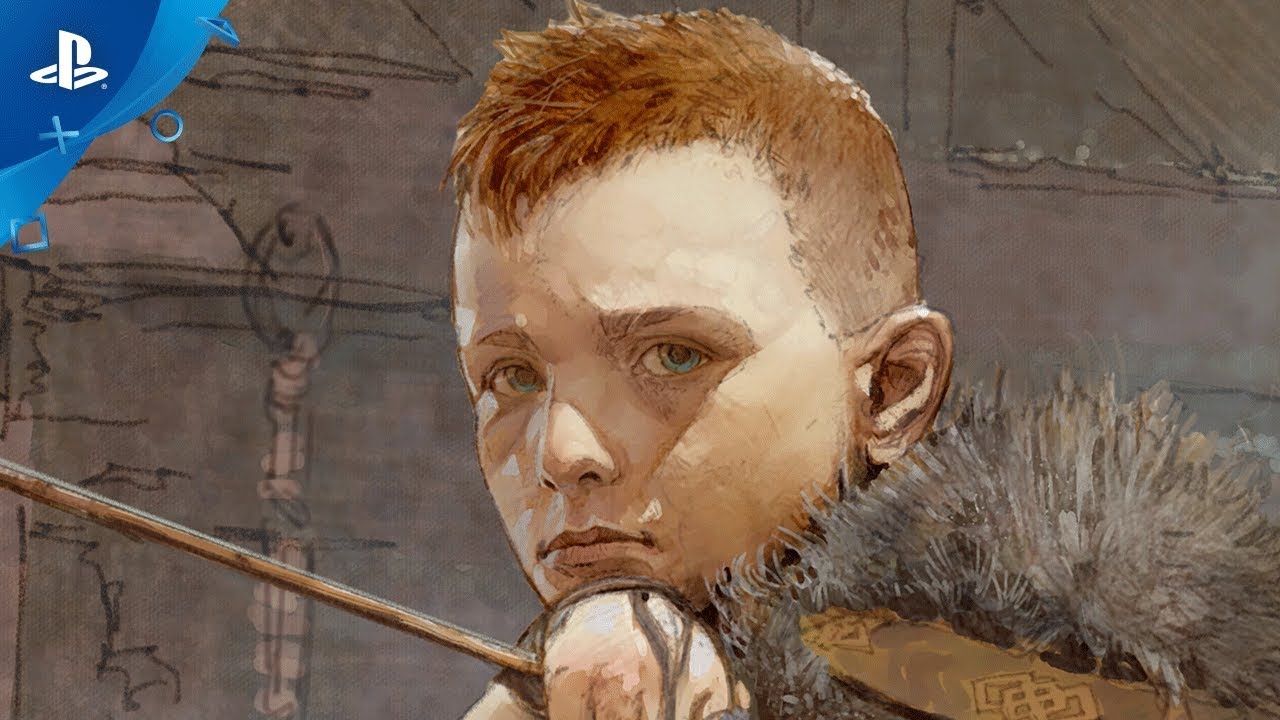
The God of War: A Call from the Wilds is a text-adventure game available on Facebook Messenger. It was released as a precursor to the 2018 God of War game. This approximately 30-minute game introduces Atreus, the son of the main character Kratos, and provides insight into his special abilities.
It also adds depth to his relationships with Kratos and his mother, Faye. The events of the game take place before the events of God of War 2018, while Faye is still alive. Although A Call from the Wilds is no longer playable, those interested can watch complete playthroughs on YouTube.
God of War (2018)
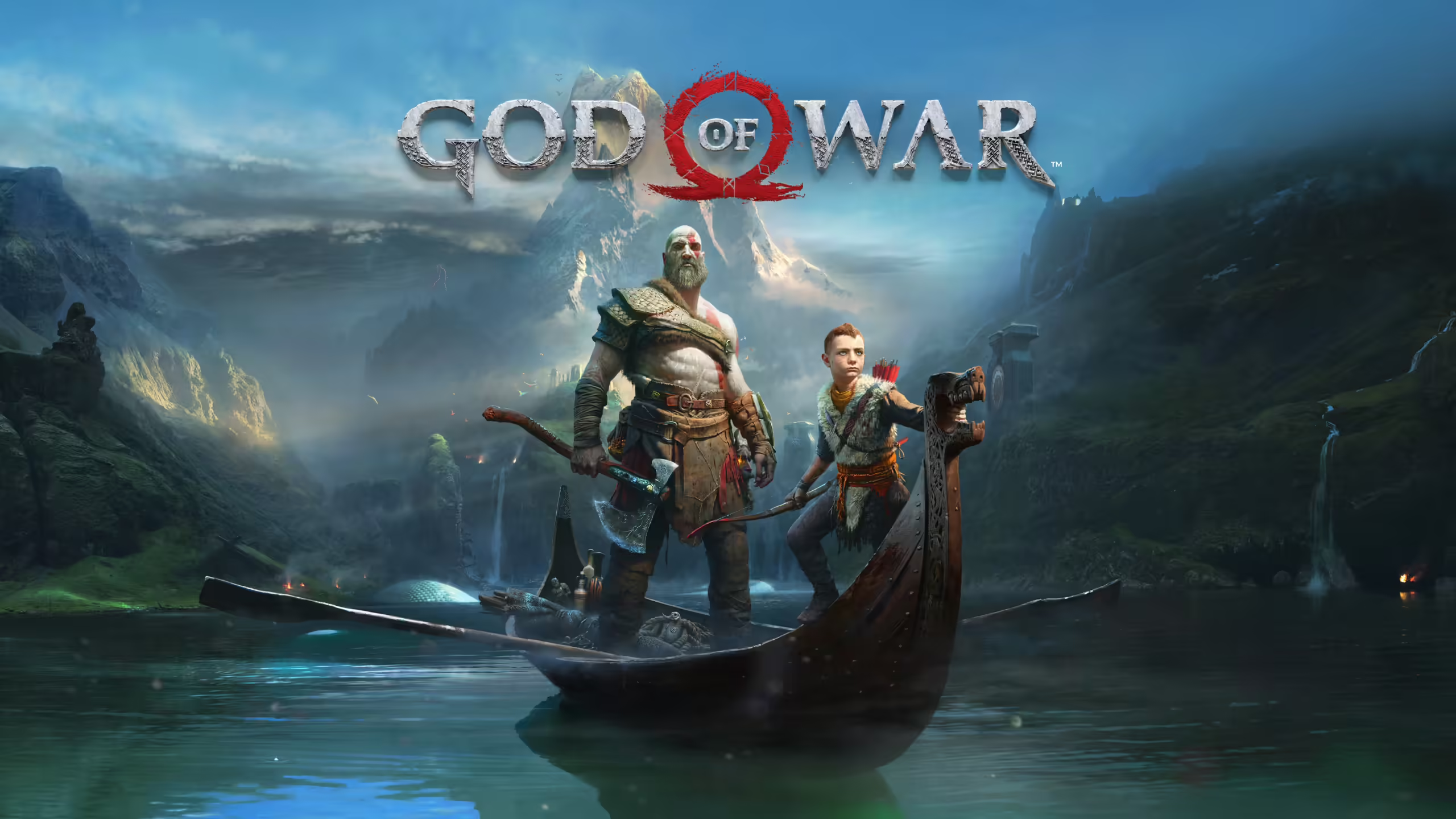
Taking place several years after the events of God of War 3, the 2018 installment of the game series shifts its setting from Greece to the Norse world of Midgard. In this new realm, Kratos, accompanied by his son Atreus, has made their home.
The main objective for Kratos and Atreus is to honor the dying wish of Faye, Kratos’ wife and Atreus’ mother, which is to scatter her ashes from the highest summit in the Nine Realms. In the God of War games, the main characters embark on a challenging journey that takes them through various realms inspired by Norse mythology.
Throughout their travels, they encounter both allies and enemies, such as Baldur, Freya, Thor’s sons Magni and Modi, the giant Jörmungandr, and the wise Mimir. Along the way, the protagonist, Kratos, grapples with the complexities of fatherhood and the hidden truths he has kept from his son, Atreus, including revelations about their own identities and Kratos’ troubled past.
As their adventure unfolds, the Nine Realms are plunged into Fimbulwinter, a bleak three-year period that serves as a foreboding precursor to Ragnarök, the catastrophic event that will bring about the end of the world.
God of War Ragnarok (2022)
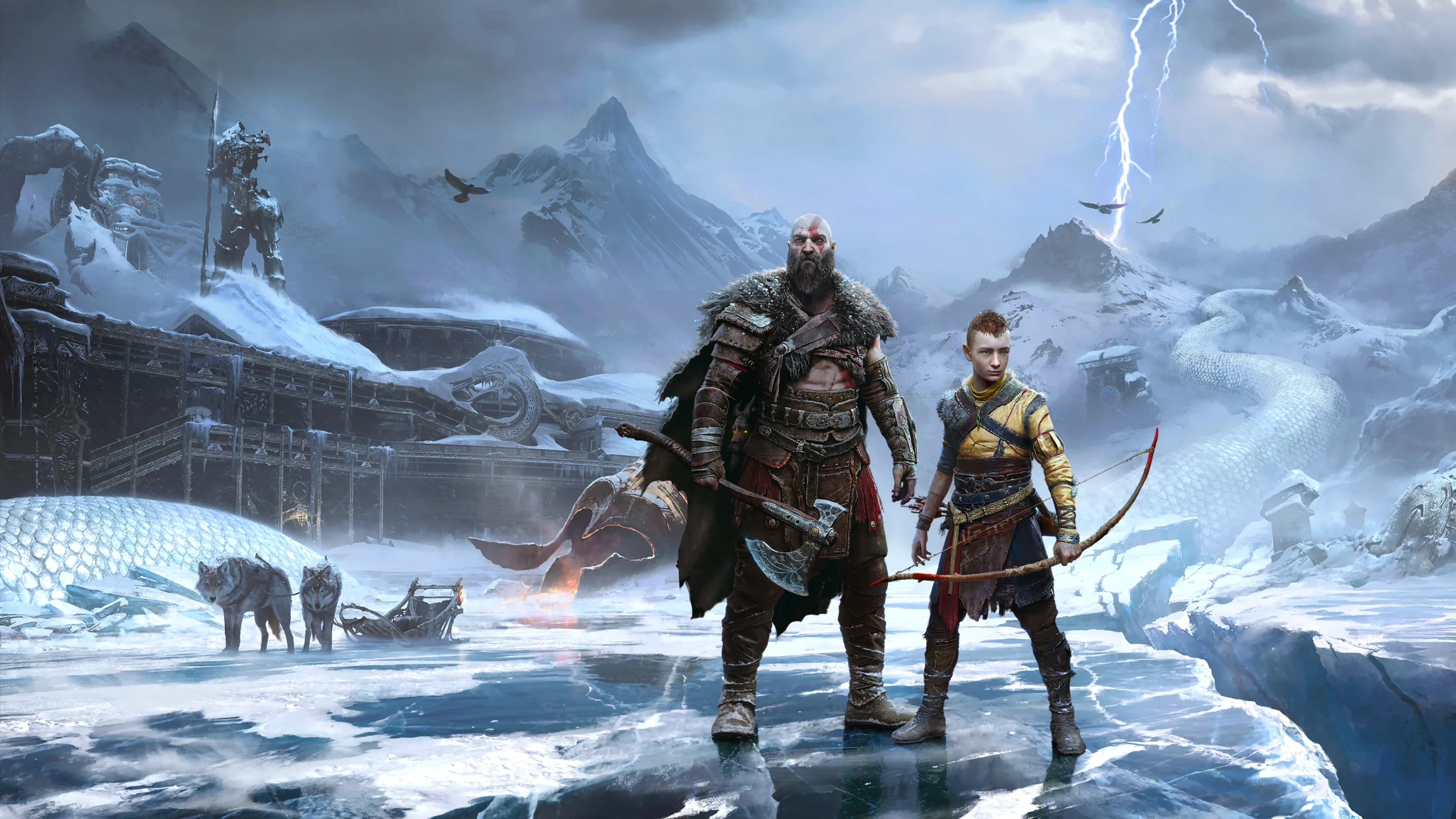
The God of War: Ragnarok game is the latest installment in the popular God of War series. It takes place three years after the events of the previous game, God of War 2018. The story is centered around the Nine Realms during the end of Fimbulwinter and the beginning of Ragnarök.
Many familiar characters return, including Kratos and his son Atreus, while new characters like Odin and Thor also make an appearance. The game primarily focuses on the adventures of Kratos and Atreus, with an emphasis on Atreus as he explores his newfound identities and powers.
Together, they embark on personal quests of self-discovery and a larger mission to defeat the Asgards and survive Ragnarok. The game’s storyline leaves room for future God of War stories to be told. Additionally, players who have completed the game can enjoy the God of War Ragnarok New Game Plus mode.




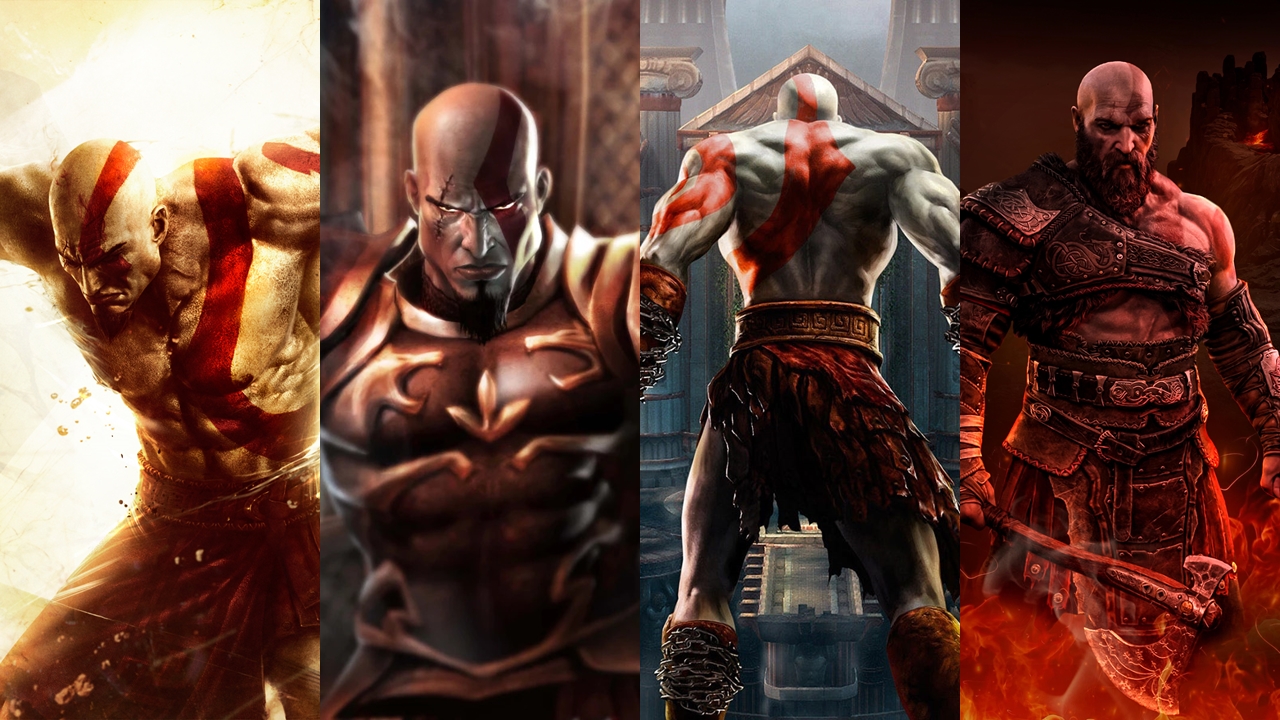





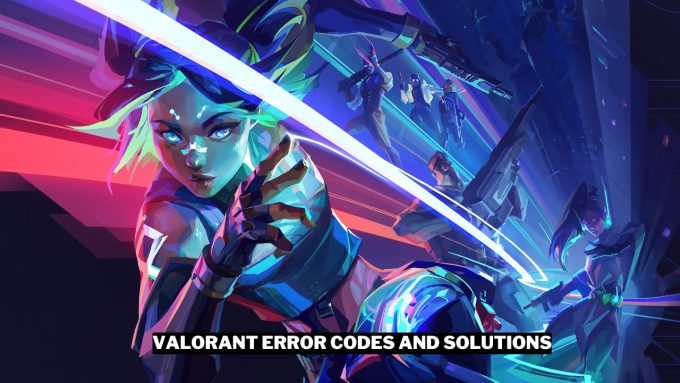


I’m excited to see the God of War franchise thriving and expanding with the upcoming PC Port and God of War Ragnarok. It’s impressive how the series has evolved in terms of scale and storytelling. The chronological order of the games provided here is helpful for those who want to fully immerse themselves in the franchise’s storyline.
I can’t wait to play God of War: Chains of Olympus on my PSP! It sounds like a thrilling addition to Kratos’s journey.